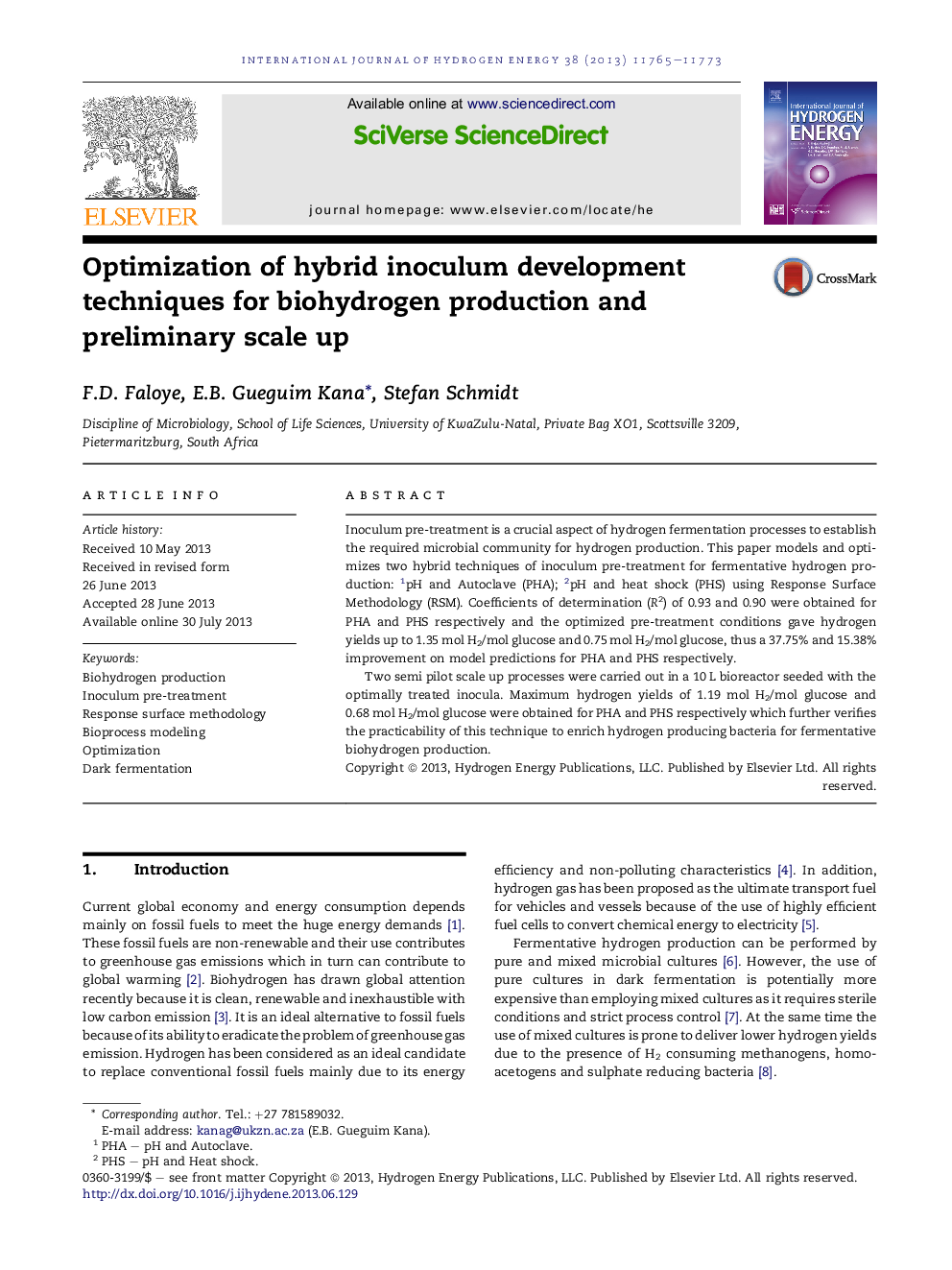| کد مقاله | کد نشریه | سال انتشار | مقاله انگلیسی | نسخه تمام متن |
|---|---|---|---|---|
| 1274892 | 1497518 | 2013 | 9 صفحه PDF | دانلود رایگان |

• Two hybrid inoculum pre-treatment techniques were modeled.
• Both models showed improvement under optimized conditions.
• Maximum hydrogen yield of 1.19 mol H2/mol glucose was obtained.
• Preliminary scale up experiments confirmed the efficiency of the techniques.
Inoculum pre-treatment is a crucial aspect of hydrogen fermentation processes to establish the required microbial community for hydrogen production. This paper models and optimizes two hybrid techniques of inoculum pre-treatment for fermentative hydrogen production: 1pH and Autoclave (PHA); 2pH and heat shock (PHS) using Response Surface Methodology (RSM). Coefficients of determination (R2) of 0.93 and 0.90 were obtained for PHA and PHS respectively and the optimized pre-treatment conditions gave hydrogen yields up to 1.35 mol H2/mol glucose and 0.75 mol H2/mol glucose, thus a 37.75% and 15.38% improvement on model predictions for PHA and PHS respectively.Two semi pilot scale up processes were carried out in a 10 L bioreactor seeded with the optimally treated inocula. Maximum hydrogen yields of 1.19 mol H2/mol glucose and 0.68 mol H2/mol glucose were obtained for PHA and PHS respectively which further verifies the practicability of this technique to enrich hydrogen producing bacteria for fermentative biohydrogen production.
Journal: International Journal of Hydrogen Energy - Volume 38, Issue 27, 10 September 2013, Pages 11765–11773